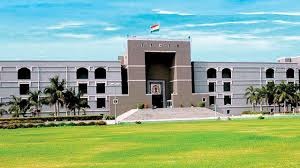
The question came up for consideration before Hon’ble Gujarat High Court in the case of Lambha Vividh Karyakari Seva Sahakari Mandli Ltd., Ahmedabad & Ors. v. District Registrar, Rural & Ors., reported in 1973 GLR 786. in which Hon’ble High Court has held by reading Sec. 28(9), 64 & 74 of Bombay Co-operative Societies Act 1925 that the formation of managing committee and the voting rights of the member to be regulated by the bye-law of the society, and therefore, bye-laws, which are required to be registered and part of the status. It was further held in this judgment: -Therefore to the extent that these bye-laws are in terms referred and cited in any provisions of the Act, they are rewritten in the Section and the Section could not be read without the language of the bye-laws: being rewritten therein. Therefore, it was held by Hon’ble Court that the bye-laws have statutory force and be enforced by writ petition under arts. 226 and 227. This decision was also followed in the judgment reported in 1975 GLR 1058, wherein the rejection of nominations was held to be illegal by Hon’ble High Court by enforcing the bye-laws under writ Jurisdiction. However, the above view of the judgment reported in 1973 GLR 786 was dissented in the case of Rajabhai Ranmal Meri & Ors. v. Members of the Managing Committee of Shri Puna Taluka Sahakari Khan’d Vechan Sangh Ltd. & Ors.,
reported in 1976 GLR 583. Hon’ble High Court in this judgment held that the bye-laws made by cooperative societies have their origin in contract and such bye-laws could not be enforced by a writ under Art. 22G or Art. 227. It was held that they do not have the force of a statute and law like Article;
of Association of a Company, they constitute a contract between the parties. Therefore, such bye-laws of a co-operative society could not be enforced by a writ of the High Court under Art. 226 or Art. 227 of the Constitution. In this judgment in para 4, an extract from reported judgment of AIR 1970 SC 245 is incorporated and the relevant portion is reproduced herein below:
” we are unable to accept the submission that the bye – laws of co-operative society framed in pursuance of the provision of the Act can be held to be law or to have the force of law. It has no doubt been held that if a statute gives power to a Government or other authority to make rules, the rules so framed have the force of statute and are to be deemed to be incorporated as a part of the statute. That principle, however, does not apply to bye-laws of the nature that a co-operative society is empowered
by the Act to make the bye-laws that are contemplated by the Act can be merely those which govern the internal management, business or administration of a society. They may be binding between the persons affected by them, but they do not have the force of a statute.”
In the same judgment, para 7 refers a Division Bench judgment of Hon’ble Gujarat High Court tin S.C.A. NO.1005 of 1965 and 1531 of 1965 decided on April 24-25, 1972 in the case of The Gujarat State Co-operative Bank Ltd. v. Ahmedabad District Bank’s State Union & Ors. In AIR 1984 SC 192, para 15, it was held that “they are neither statutory in character nor they have statutory flavour so as to be raised to the status of law.” The importance by bye-laws diluted by the above decisions was raised to its right level in case of Rajkot Nagrik Sahakari Bank Ltd. reported in 1977 GLR 692. In this judgment,
it was held that High Court has powers to issue writ of certiorari under Art. 227 and not a writ of mandamus under Art. 226 enforce a bye-law. It was held that the erroneous Legal proposition, which is the basis of its decision by misreading the bye-laws can be interfered by a write of certiorari under Art.
227. The same view is again taken in Ranuj Nagrik Sahakari Bank Ltd. by Hon’ble Gujarat High Court In decision reported in 1996(1) GHL 753. Therefore, the bye-laws when they are registered can’t be misread while taking a decision. The erroneous decision of the Registrar or the Nominee based on misreading of bye-law is an error of law and can be interfered with by Hon’ble High Court by a writ of certiorari under Art. 227.”
